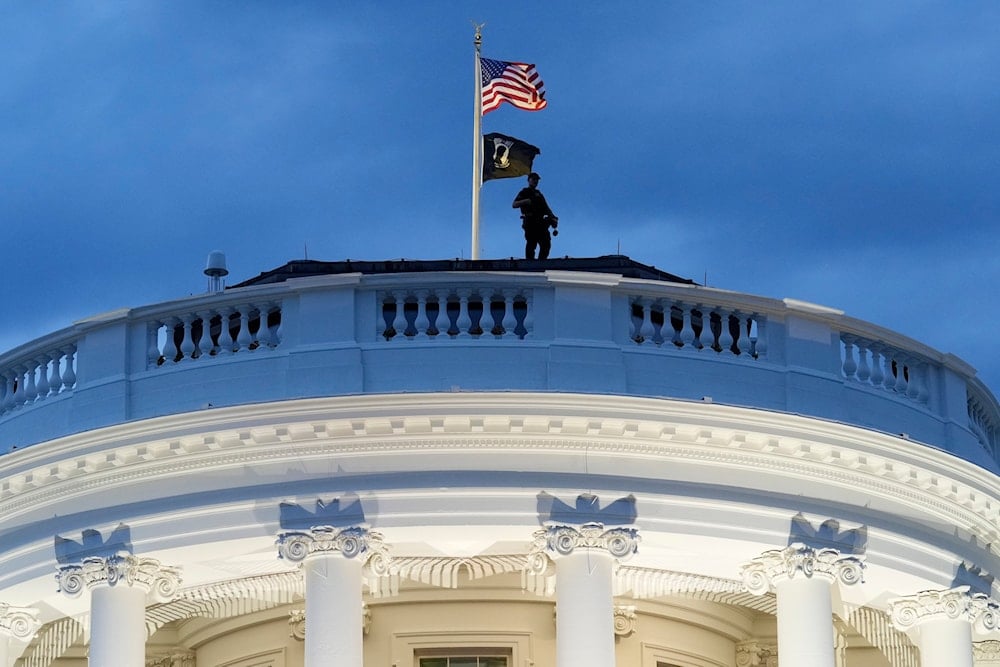Senate's bipartisan talks on ICC sanctions break down
Bipartisan negotiations in the US Senate over potential sanctions against the International Criminal Court (ICC) reach an impasse.
-

A member of the US Secret Service stands on the roof of the White House during a Juneteenth concert on the South Lawn of the White House in Washington, on June 10, 2024. (AP)
Bipartisan Senate talks on potential sanctions against the International Criminal Court (ICC) have reached a dead end, Axios has learned.
Deciding how strongly to respond to the court's decision to seek an arrest warrant against Israeli Prime Minister Benjamin Netanyahu has become a politically critical issue ahead of the 2024 election.
Discussions between top Senate Democratic and GOP negotiators have hit a wall, two sources familiar with the talks told Axios.
On that note, no discussions are planned between the groups led by Foreign Relations Committee chair Ben Cardin (D-Md.) and the panel's top Republican, Jim Risch (R-Idaho). However, Cardin is continuing to talk with Republicans who are not on the committee about a response to the ICC's move, one of the sources said.
Republicans in favor of ICC sanctions
Republicans have demanded a vote on a House bill imposing sanctions on the ICC, while Democrats have pushed for a more measured approach.
The lack of a bipartisan solution in the Senate could jeopardize any chance of Congress passing an ICC-related bill, shifting the responsibility for addressing the court's actions to the White House.
Republicans have used the ICC discussions to highlight internal Democratic divisions over "Israel". While Republicans have shown near-unanimous support for "Israel", Democrats have faced differences between moderates and progressives regarding Netanyahu's handling of the war in Gaza.
White House opposes ICC sanctions
Some Democrats support sanctions against the ICC, while others are concerned about permanently damaging the US relationship with the court. However, the White House has publicly stated it does not support sanctions against the ICC.
Lawmakers have discussed other options for responding to the ICC, including cutting US support for some of the court's programs.
The House passed a bill last week requiring sanctions and visa restrictions on foreigners working for or funding the ICC in prosecutions targeting the US and its allies. Senate Republicans have demanded a vote on the House bill.

 2 Min Read
2 Min Read








